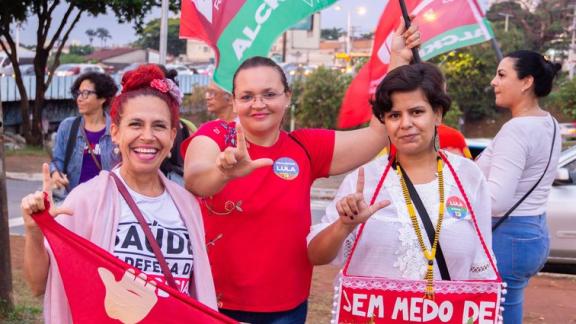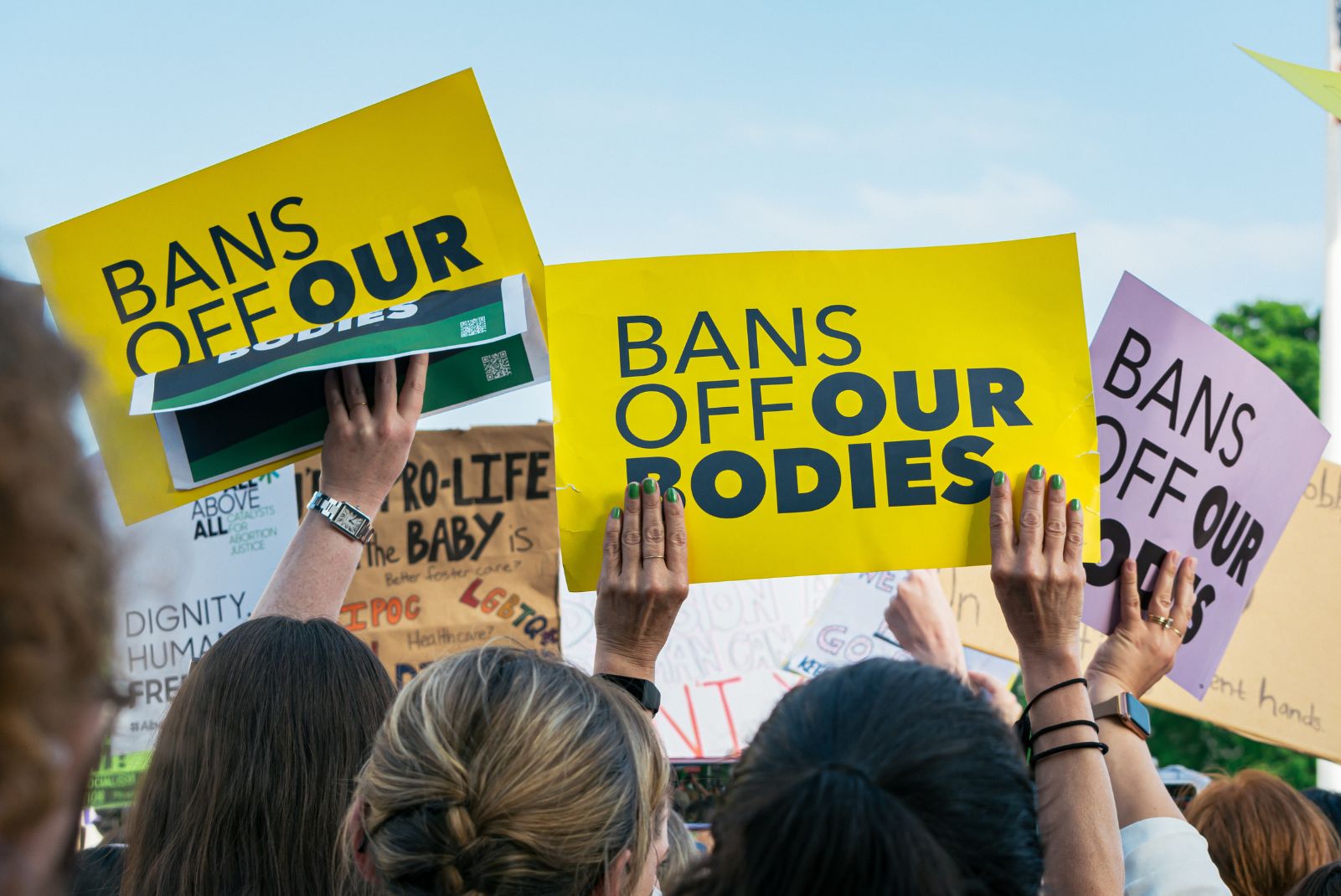The result of Brazil’s election last October was a cause for celebration for many across the country. After four long years of far-right rule under Jair Bolsonaro, change was coming via a progressive administration committed to equality and freedom, under new president Luiz Inácio Lula da Silva.
Gabriella, a Brazilian-British woman and Lula supporter, was in the city of Salvador on election night. “The joy and relief… it was like Carnival,” she said, speaking to the International Planned Parenthood Federation (IPPF), the organisation where I work as regional director for the Americas. “The nightmare of Bolsonaro’s corrupt, violent and inept government was finally over.”
2023 marks the beginning of a pivotal era of change for Brazil, kicked off by the announcement that the country will leave the Geneva Consensus – a global anti-abortion declaration introduced by the Trump administration in 2020. It’s a colossal win for sexual and reproductive health and rights (SRHR) advocates, who have fought long and hard for this moment.
But many obstacles remain.
The legacy of Bolsonaro
Even before the election, there was a long and insidious campaign to undermine voters’ faith in democracy. Afterwards, false allegations of election fraud soon spread among Bolsonaro supporters. Then, on 8 January, in a move mirroring the US Capitol Hill attack almost exactly two years earlier, Bolsonaristas stormed the three most important political buildings in Brazil: Congress, the Supreme Court and the presidential palace. It was a clear display of the macho fundamentalist politics that has infiltrated the psyche of many across the country in recent years.
As with Trump in the US, Bolsonaro’s rise to the presidency was fuelled by growing religious extremism, overseen by evangelical Christians and conservative politicians who took advantage of Brazil’s economic fragility and violent crime rates to undermine democracy and push a solid conservative agenda. Bolsonaro argued that the “flawed politics of human rights”, “gender ideology”, and the loss of moral values were the cause of Brazil’s problems.
Evangelicals gained key positions in Bolsonaro’s government, and his tenure saw rampant attacks on human rights, especially SRHR. Bolsonaro himself was openly anti-abortion and sexist. There were concerted political efforts to discredit and restrict comprehensive gender and sexuality education in schools; teachers even faced disciplinary action for holding lessons on feminism and gender-based violence.
Bolsonaro was also openly homophobic, and his administration incited hatred towards LGBTQI+ people, removing LGBTQI+ protections from the remit of the human rights ministry. Although heavily underreported, attacks on LGBTQI+ people steadily increased during his presidency – as highlighted in a 2019 survey by independent media outlet Gênero e Número.
For a country with a long history of socially liberal politics, this sharp jolt away from the principles of democracy is a chilling reminder of the far-right fundamentalist regression sweeping the globe – a regression that has sown its seeds so deeply that long-held democratic values remain under threat, even after the Bolsonaros and Trumps of the world have left office.
Improving Sexual and Reproductive Health and Rights
Now, just weeks into 2023, the struggles for democracy continue. Feminist organisations across Brazil are strategising and reprioritising to put the human rights of the Brazilian people back at the top of the agenda.
For the non-governmental organisation Gestos, International Planned Parenthood Federation’s partner in the city of Recife in the north-east of Brazil, this means working with the new administration to rebuild from scratch the devastated terrain of sexual and reproductive health and justice.
Securing financing is crucial. This includes using parliamentary support to overcome the 2023 budget restrictions set by the Bolsonaro administration and lobbying to draw down on funds assigned to other policy areas. It also includes pushing for the reversal of Bolsonaro’s devastating fiscal laws, which cut funds from national health, social protection and SRHR budgets. After all, good policies need a budget to implement them.
when
country
Brazil
region
Americas & the Caribbean

We must reshape the harmful narratives around gender, equality and diversity that are deeply embedded in public opinion

Advocacy also remains critical to creating an environment where health, rights and justice can flourish. Restoring inclusive education policies – including comprehensive sexuality education – to the heavily suppressed school curriculum is crucial to reshaping the harmful narratives around gender, equality and diversity that are deeply embedded in public opinion.
In health, garnering government support for holistic healthcare that fully addresses the multitude of social, psychological and economic issues facing the Brazilian population is essential. For SRHR, in particular, this would ensure greater reproductive freedom and choice for women and girls, many of whom face barriers to healthcare as well as poverty, inequity in education, and gender-based violence.
Ensuring access to the entire spectrum of healthcare, support and education is crucial to providing high-quality HIV care – especially as the number of young people living with HIV continues to rise. This involves fighting the stigma, stereotypes and stringent legislation that prevent people from getting the help they desperately need; and allowing them to take control of their health by moving away from the distinct medicalisation of Bolsonaro-era care, which focused only on symptom eradication.
Finally, reconnecting local action with international activism is critical to re-establishing human rights, both in Brazil and worldwide. This means being vigilant of the opposition to protect communities against the fast-growing fundamentalism that has infiltrated governments and communities worldwide; and uniting at the intersections of democratic values, sexual and reproductive health and rights, and social justice to foster solidarity, protect democracy and reinforce a commitment to human rights for all.
There is still hope, for Gabriella, “that better times are ahead”.
This piece first appeared in OpenDemocracy.











